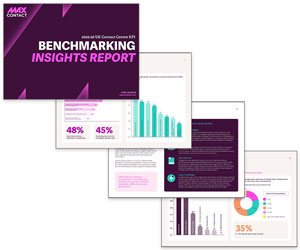Did you know that 34% of small business owners in the UK remain unaware of the regulations enforced by Ofcom?
It is crucial for businesses to ensure they understand and comply with the regulations established by Ofcom. Failing to comply with these regulations can result in serious consequences, including hefty fines and reputational damage.
For example, Ofcom’s strict regulation around CLI usage should be adhered to by all outbound call centres as non-compliance can lead to significant financial penalties, with Ofcom having the power to impose fines of up to £2 million for persistent misuse of electronic communications networks and services.
Additionally, the reputational harm caused by non-compliance can erode customer trust and loyalty, ultimately impacting the bottom line.
By familiarising themselves with Ofcom’s guidelines, contact centres can ensure that their outbound calling practices are legal, ethical, and respectful of consumer rights.
This knowledge empowers businesses to make informed decisions when selecting dialler solutions and implementing calling strategies.
Staying compliant not only helps contact centres avoid costly penalties but also demonstrates a commitment to responsible and transparent communication practices, enhancing customer confidence and fostering long-term relationships.
Understanding Ofcom’s Guidelines for CLI Usage on Diallers
Ofcom has established clear guidelines for the use of CLIs on diallers. According to these regulations, businesses engaging in direct marketing calls must not prevent the presentation of the calling line identity to the recipient.
This Means That Sales Numbers Should be Valid and Displayed to the Person Receiving the Call. Communication Providers (CPs) are required to offer CLI facilities by default, without any extra charges, unless it is technically unfeasible or economically unviable.
Additionally, CPs must ensure that the CLI Data Accompanying a Call Contains a Valid Phone Number That Uniquely Identifies the Caller and Can Be Dialled Back.
The recipient should have the Ability to Return the Call Using the Provided CLI. It is important to note that Every Call Must Be Associated With a Network Number, which identifies the source of the call, and a Presentation Number, which represents the caller’s identity.
Ofcom may also regard it as misuse if, when a person calls the provided CLI and is connected to an agent or an automated message, no information is provided about the organisation making the call or on whose behalf the call was made, and an opportunity to opt out of future unsolicited marketing calls or messages is not given.
Using the call as an opportunity to market to the person without their consent is also a form of misuse.
Other examples of misuse include failing to identify the calling party, making calls to individuals registered on the Telephone Preference Service’s do not call list or the organisation’s own in-house do not call list, and using Automated Calling Systems (ACS) in ways that breach the Privacy and Electronic Communications Regulations (PECR), such as making recorded direct marketing calls without the recipients’ consent.
In addition to the misuses mentioned above, Ofcom also Considers silent and abandoned calls as Forms of Misuse that businesses should be aware of and take steps to prevent.
Silent calls occur when the recipient answers the phone but hears nothing on the other end, is disconnected abruptly, hears background noise or distant chatter, or experiences a combination of these issues.
These calls can be caused by the use of automated dialling systems or by agents hanging up when the recipient answers.
Abandoned calls, also known as “dropped calls” in the call centre industry, happen when the caller intends for the recipient to speak with a live agent but is instead met with silence or an informational message.
Ofcom considers calls that are allowed to ring for less than 15 seconds before being terminated, or are left ringing for extended periods, as more likely to cause harm and be subject to enforcement action.
Businesses should familiarise themselves with these misuses and take steps to ensure their calling practices are compliant with Ofcom’s regulations to maintain a positive reputation and avoid potential enforcement action.
Consequences of Non-Compliance
Failing to comply with Ofcom’s regulations regarding CLI usage can result in serious consequences for businesses. Ofcom has the power to take enforcement action against persistent misuse of electronic communications networks and services.
This Includes the Use of Invalid or Non-Dialable CLI Data, Withholding CLIs for Marketing Calls, Displaying Inauthentic or Unreturnable Numbers, and Using Premium Rate Service Numbers.
Ofcom considers various factors when determining the Severity of the Misuse and the likelihood of enforcement action.
These factors include the volume and rate of silent or abandoned calls, the number of consumer complaints, the seriousness of the harm caused, evidence of deliberate non-compliance, and the time of day at which the misuse occurs.
In cases of persistent misuse, Ofcom can impose Penalties of up to £2 Million and take action to stop the misuse and remedy its consequences.
Therefore, it is imperative for businesses to prioritise compliance with Ofcom’s regulations to avoid costly penalties and reputational damage.
Key Takeaways: Ofcom Regulations for CLI Usage
- 34% of small business owners in the UK are unaware of Ofcom regulations, which can lead to serious consequences for non-compliance, including fines up to £2 million and reputational damage.
- Ofcom requires businesses engaging in direct marketing calls to display a valid calling line identity (CLI) to the recipient, which must contain a dialable number that uniquely identifies the caller.
- Every call must be associated with a Network Number (identifies the source) and a Presentation Number (represents the caller’s identity).
- Misuse of CLI includes failing to provide information about the calling organisation when a person calls back, using the callback as an opportunity to market without consent, failing to identify the calling party, calling individuals on do-not-call lists, and using Automated Calling Systems in breach of the Privacy and Electronic Communications Regulations (PECR).
- Silent and abandoned calls are also considered forms of misuse. Silent calls occur when the recipient hears nothing, is disconnected, or hears background noise. Abandoned calls happen when the recipient expects a live agent but is met with silence or an informational message.
- Ofcom considers various factors when determining the severity of misuse and likelihood of enforcement action, including volume and rate of silent or abandoned calls, consumer complaints, harm caused, evidence of deliberate non-compliance, and time of day.
This blog post has been re-published by kind permission of MaxContact – View the Original Article
For more information about MaxContact - visit the MaxContact Website
Call Centre Helper is not responsible for the content of these guest blog posts. The opinions expressed in this article are those of the author, and do not necessarily reflect those of Call Centre Helper.
Author: MaxContact
Published On: 2nd May 2024 - Last modified: 6th Dec 2024
Read more about - Guest Blogs, MaxContact






 MaxContact is the AI-powered customer engagement software that helps you turn every customer conversation into a high-impact, revenue-driving moment. We empower your teams to connect smarter, perform better, and scale faster – without losing the human touch.
MaxContact is the AI-powered customer engagement software that helps you turn every customer conversation into a high-impact, revenue-driving moment. We empower your teams to connect smarter, perform better, and scale faster – without losing the human touch. 































